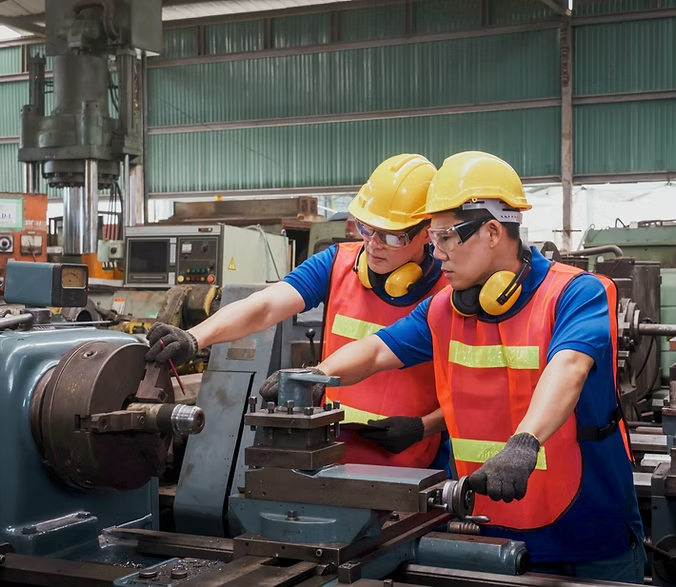Machinery and Equipment Valuation: Expert Guide for Decision

Machinery and Equipment Valuation – Expert Services by Assetica
In the modern business world, assets play a crucial role in determining an organization’s financial health. Among these, machinery and equipment form the backbone of industries such as manufacturing, construction, logistics, and energy. To ensure transparency, compliance, and accurate financial reporting, Machinery and Equipment Valuation becomes essential.
At Assetica, we specialize in professional valuation services that help businesses, investors, and stakeholders understand the true worth of their assets. Whether it is for compliance, insurance, taxation, or strategic decision-making, machinery and equipment valuation provides the clarity businesses need.
What is Machinery and Equipment Valuation?
Machinery and equipment valuation is the process of determining the fair market value of physical assets used in business operations. These assets include manufacturing machines, construction equipment, vehicles, tools, and other specialized systems.
Valuation is not limited to purchase or resale; it also plays a vital role in financial reporting, mergers and acquisitions, insurance claims, and tax compliance. By conducting a professional valuation, businesses avoid misreporting and ensure accuracy in financial records.
Why Machinery and Equipment Valuation is Important
The significance of machinery and equipment valuation extends across industries. Here’s why it matters:
-
Regulatory Compliance
Businesses must meet accounting and tax regulations that require accurate valuation of machinery and equipment. -
Accurate Financial Reporting
Proper valuation ensures that balance sheets and profit-and-loss statements reflect the true condition of assets. -
Insurance Coverage
Insurance claims rely on accurate asset values. Overvaluation increases premiums, while undervaluation risks under-coverage. -
Mergers and Acquisitions (M&A)
In M&A deals, machinery valuation ensures fair pricing and reduces the risk of disputes. -
Loan Collateral
Banks and financial institutions require machinery valuation before approving loans secured by assets.
Methods of Machinery and Equipment Valuation
Different valuation methods are applied based on the type of asset, its age, condition, and market demand. Common approaches include:
1. Cost Approach
This method calculates the replacement or reproduction cost of machinery, adjusting for depreciation. It is best suited for new or specialized equipment.
2. Market Approach
By comparing the asset with similar machinery available in the market, this approach establishes fair value. It works well for commonly traded equipment.
3. Income Approach
This method evaluates the earning potential generated by the machinery over its useful life. It is suitable for revenue-generating assets.
4. Hybrid Approach
In some cases, a combination of cost, market, and income approaches is applied for greater accuracy.
Machinery and Equipment Valuation Across Industries
Different industries rely heavily on machinery, making valuation services vital for their operations.
-
Manufacturing: Machines for production lines, assembly units, and robotics.
-
Construction: Cranes, excavators, and heavy-duty vehicles.
-
Oil & Gas: Specialized drilling and refining equipment.
-
Healthcare: Medical devices, diagnostic machines, and lab equipment.
-
Transport & Logistics: Vehicles, cargo-handling tools, and fleet systems.
Each industry requires specialized expertise to determine accurate valuations.
Benefits of Professional Machinery and Equipment Valuation
Partnering with a professional valuation company like Assetica offers numerous benefits:
-
Transparency – Builds trust with investors and stakeholders.
-
Dispute Avoidance – Minimizes conflicts during audits, sales, or mergers.
-
Better Financial Planning – Enables businesses to manage asset depreciation and plan replacements.
-
Tax Efficiency – Helps in calculating correct depreciation for tax deductions.
-
Investment Decisions – Provides clear insights for asset acquisition or disposal.
Challenges in Machinery and Equipment Valuation
While essential, machinery valuation is not without challenges:
-
Technological Changes: Rapid advancements reduce equipment life cycles.
-
Market Volatility: Economic fluctuations affect resale values.
-
Condition Assessment: Wear and tear vary across assets, making valuation complex.
-
Global Standards: Multinational businesses must comply with international reporting norms.
These challenges highlight the need for expert guidance.
How Assetica Excels in Machinery and Equipment Valuation
At Assetica, we combine industry expertise with advanced valuation methods to deliver accurate results. Our approach includes:
-
Detailed Asset Inspections – On-site evaluations to assess condition and functionality.
-
Use of Advanced Tools – Technology-driven valuation for precision.
-
Customized Reports – Clear, detailed valuation reports for stakeholders.
-
Compliance-Ready Services – Adhering to IFRS, RICS, and global valuation standards.
Whether for compliance, financing, or investment planning, Assetica ensures businesses receive reliable valuations that support their goals.
When Should Businesses Opt for Machinery and Equipment Valuation?
Regular valuation helps companies maintain financial accuracy. Situations that call for machinery valuation include:
-
Annual Financial Audits
-
Mergers, Acquisitions, or Partnerships
-
Loan Applications with Asset Collateral
-
Insurance Renewals
-
Tax Filing and Compliance
-
Business Restructuring or Liquidation
By scheduling periodic valuations, businesses avoid last-minute disputes and maintain transparency.
The Future of Machinery and Equipment Valuation
With digital transformation, the valuation industry is evolving rapidly. Emerging technologies like AI, IoT, and blockchain are making valuations more precise and efficient. Predictive analytics will help assess future asset depreciation, while automated reporting will enhance compliance.
Companies that embrace these advancements with the help of professional advisors like Assetica will remain ahead in financial planning and decision-making.
Conclusion
Machinery and equipment valuation is more than just a compliance requirement—it is a strategic tool for businesses. From accurate financial reporting to insurance claims, mergers, and tax planning, valuation ensures that companies operate with transparency and confidence.
At Assetica, we deliver professional machinery and equipment valuation services tailored to your business needs. With our expertise, businesses can minimize risks, enhance planning, and achieve long-term growth.
If you want to secure your business’s financial future and ensure compliance, Assetica is your trusted partner for machinery and equipment valuation.








